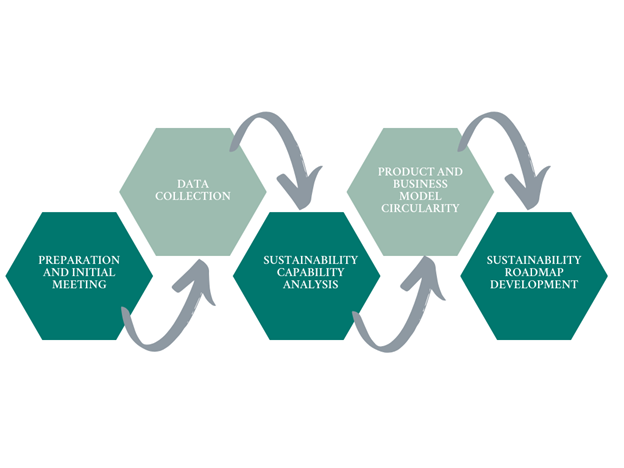ESG (Environmental, Social & Governance) encompasses a comprehensive strategy for companies or organizations that integrates social and environmental values alongside economic aspects.
Although ESG is not directly regulated by law, high-quality ESG management is crucial for both large and small businesses. It helps increase company value, mitigate investment risks, and maintain the company’s reputation among investors and the public.
ESG is a key component of the green innovation services provided by the DGE Group to its Scandinavian clients (Volvo, NCC, Absolut, among others) for over 10 years, positioning itself at the forefront of the industry. Hendrikson DGE views a sustainable business model as new opportunities and approaches, focusing on circular economy and climate neutrality to uncover new possibilities and reduce risks.
Our holistic approach focuses on reducing a company’s environmental and social footprints using methods developed based on the EU’s Sustainable Development Goals (SDGs), Corporate Sustainability Reporting Directive (CSRD), Non-Financial Reporting Directive (NFRD), and other international standards such as the Global Reporting Initiative (GRI), Sustainability Accounting Standards Board (SASB), and Task Force on Climate-Related Financial Disclosures (TCFD).


Key ESG topics:
Environmental:
|
Social:
|
Governance:
|
How Hendrikson DGE Can Assist Your ESG Development
Regardless of the stage of your company’s ESG development, we can assist with the following:
- Creating ESG strategies
- Developing and regularly monitoring ESG metrics, including compliance with sustainability taxonomies (DNSH)
- Reporting and disclosure of results, such as greenhouse gas protocol (GHG protocol)
- Stakeholder mapping and engagement
- Environmental impact assessment and footprint calculation
- Consulting on management systems and applying for environmental certifications
- Designing action plans
- Identifying resource efficiency opportunities
- Applying for environmental grants
- Conducting life cycle assessments (LCA) and preparing environmental product declarations (EPD)

